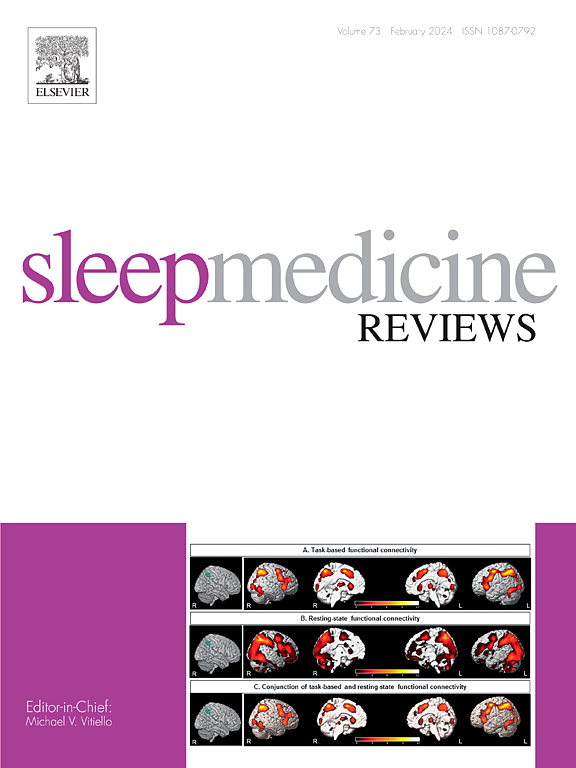The impact of sleep loss on decision making: Opening the cognitive black box
IF 9.7
1区 医学
Q1 CLINICAL NEUROLOGY
引用次数: 0
Abstract
The impact of sleep loss on decision-making is well-documented, yet current quantitative methods often obscure the cognitive mechanisms underlying these impairments. This review examines evidence from key studies on how sleep deprivation affects decision-making domains, including risk propensity, effort and delay discounting, Bayesian reasoning, and cognitive flexibility. We critique the prevalent reliance on global behavioural metrics, highlighting three key limitations: 1) sleep-driven cognitive effects may be masked despite non-significant behavioural outcomes, 2) alternative cognitive strategies are often overlooked, and 3) these metrics fail to incorporate advances in cognitive neuroscience. To address these issues, we advocate for integrating computational cognitive models with existing quantitative methods. These models provide precise estimates of latent cognitive processes often missed by conventional analyses. As an exemplar, we reanalyse previously published data, revealing sleep-related deficits in value sensitivity and increased decision noise. These insights highlight the utility of computational cognitive models in supplementing traditional methods to uncover how sleep loss affects specific cognitive processes essential for decision-making. Beyond improving mechanistic insights, computational cognitive models may enhance the accuracy and interpretability of sleep research and inform the development of targeted interventions to mitigate decision-making impairments caused by sleep loss.
睡眠不足对决策的影响:打开认知黑盒子
睡眠不足对决策的影响是有据可查的,但目前的定量方法往往模糊了这些损害背后的认知机制。本文回顾了睡眠剥夺如何影响决策领域的关键研究证据,包括风险倾向、努力和延迟折扣、贝叶斯推理和认知灵活性。我们批评了普遍依赖全球行为指标,强调了三个关键局限性:1)睡眠驱动的认知效应可能被掩盖,尽管没有显著的行为结果;2)替代认知策略经常被忽视;3)这些指标未能纳入认知神经科学的进展。为了解决这些问题,我们提倡将计算认知模型与现有的定量方法相结合。这些模型提供了对传统分析常常遗漏的潜在认知过程的精确估计。作为一个例子,我们重新分析了以前发表的数据,揭示了与睡眠相关的价值敏感性缺陷和决策噪声增加。这些见解强调了计算认知模型在补充传统方法方面的效用,以揭示睡眠不足如何影响决策所必需的特定认知过程。除了提高机制的洞察力,计算认知模型可以提高睡眠研究的准确性和可解释性,并为有针对性的干预措施的发展提供信息,以减轻由睡眠不足引起的决策障碍。
本文章由计算机程序翻译,如有差异,请以英文原文为准。
求助全文
约1分钟内获得全文
求助全文
来源期刊

Sleep Medicine Reviews
医学-临床神经学
CiteScore
20.10
自引率
3.80%
发文量
107
期刊介绍:
Sleep Medicine Reviews offers global coverage of sleep disorders, exploring their origins, diagnosis, treatment, and implications for related conditions at both individual and public health levels.
Articles comprehensively review clinical information from peer-reviewed journals across various disciplines in sleep medicine, encompassing pulmonology, psychiatry, psychology, physiology, otolaryngology, pediatrics, geriatrics, cardiology, dentistry, nursing, neurology, and general medicine.
The journal features narrative reviews, systematic reviews, and editorials addressing areas of controversy, debate, and future research within the field.
 求助内容:
求助内容: 应助结果提醒方式:
应助结果提醒方式:


